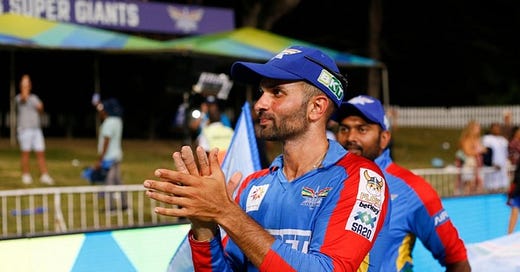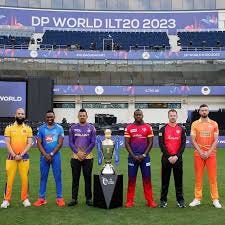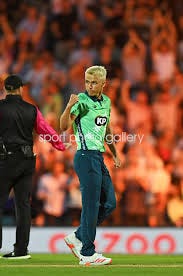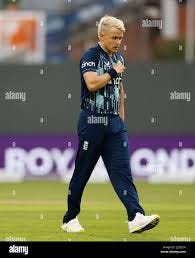Basking in the afterglow of success is too often frowned upon in sport. It is not ‘inappropriate’ to celebrate a target attained or a result achieved, so everybody involved in the second edition of the SA20 should rightly indulge in a bit of mutual back-slapping.
There is a suitable and appropriate length of time for this indulgence, but it would be plainly wrong for the masterminds and labourers behind the SA20 not to cherish the results of their hard work for the last 12 months. The tournament was an outstanding success.
The old ‘second season truth’ adage has applied to individual cricketers for many decades, but more so in the modern age of video analysis and technique scrutiny. It’s all well and good for a youngster to make a splash in their first season when nobody knows their strengths and weaknesses, but can they do it again when their cards have been displayed?
The SA20 debut season last year was described by several, sceptical viewers from abroad as a ‘sugar rush’. It was hardly unprecedented. But could it be sustained? The answer was an emphatic ‘yes’. For all the success of the marketing, ticketing, promotions and the critical partnership with Supersport, the major reason for the repeat success was the players. Local players.
Several of the best should have been in New Zealand playing in the World Test Championship, but that’s a different subject. The decision to keep them at home may have done irreparable damage to the country’s Test reputation, but it undoubtedly enhanced the status of the SA20, which was the point.
As nice as it was to have a smattering Englishmen and Australians – and a few others – amongst the squads, none made a material difference to the outcome or, it’s fair to say, put more bums on seats. Jos Buttler was the best white ball batter in the world when the Paarl Royals signed him for half-a-million dollars, and he committed every sinew of his skill to the cause, but to no avail.
It was curiously fascinating to see how many players from the SA20 were already playing in other leagues before the tournament was concluded. The Pretoria Capitals opening batters, Phil Salt and Will Jacks, were playing for the Desert Vipers and Comilla Victorians in Dubai and Bangladesh respectively within a day or two of their teams’ elimination from the SA20.
MI Cape Town’s Sam Curran was also in action in the ILT20 moments after his team’s ignominious exit, also a Desert Viper. The travel logistics have to be admired, even if the players do enjoy VIP privileges not experienced by the rest of us. Reeza Hendricks made a half-century for the Chattogram Challengers against the Rangpur Raiders shortly after arriving in Bangladesh while Keshav Maharash played for Fortune Barishal less than 20 hours after arriving in the country.
The long-term consequences for the credibility of these tournaments will be seen sooner rather than later, but the players are in boom-time. And good for them. They are going to extraordinary lengths to cash-in while they can, including a necessary indifference to the team they are representing and what, if anything, they represent.
There was a (sadly short) period soon after the initial explosion of the internet when freelance writers and journalists were in great demand to create content for websites which were viewed by their creators as a simple and quick way to make money.
They learned quickly that there is no easy way to make a buck and soon the payments stopped, unfortunately. We would have written for anybody, and mostly did. The boon years lasted for about six months. The websites learned that committed, in-house writers were a better investment than occasional articles form ‘big-name’ writers and the world settled down again. Let’s see how long it takes T20 leagues to catch on.
But there is, potentially, a far more serious side to the unregulated movement of players between over-lapping tournaments. Much more serious than the inability of supporters to develop an affection or even affinity with their preferred teams.
Over a dozen players in the SA20 already had oven-ready contract offers in place from the BPL and the ILT20 for the moment their involvement in South Africa’s tournament was over. At, say, $20k per game available elsewhere, the possibility that their performances for teams struggling to make the play-offs would be affected with their attention turning to the bounty on offer elsewhere.
The players will baulk at any reduction in their earning potential in the short-term, but any dispassionate sports and business analyst will see that, long-term, the current situation will result in less earning capacity with supporters, sponsors and advertisers becoming confused and disillusioned by the sight of the same players appearing in Cape Town, Chittagong or Sharjah, in three different tournaments, before any has concluded.
One player, one tournament is a regulation which will happen because it has to for the competitions to have any chance of surviving. The question is: will it happen organically, and painfully, through market forces, or now, voluntarily and with less overall discomfort?










I didn't know whether to cry or fall out of bed laughing when I saw this. It's all a bit "Putin urges Russians to be more sensitive to Ukrainians", isn't it? Maybe laughing and crying simultaneously is the correct, correctly schizophrenic response!
"While saying the [Indian] board was proud of the IPL's success over the years, Shah [Jay, BCCI secretary] wrote: "However, there is a trend that has started to emerge and is a cause for concern. Some players have begun prioritising the IPL over domestic cricket, a shift that was not anticipated. Domestic cricket has always been the foundation upon which Indian cricket stands, and it has never been undervalued in our vision for the sport.
"It is essential to recognise that domestic cricket forms the backbone of Indian cricket and serves as the feeder line to Team India. Our vision for Indian cricket has been clear from the outset - every cricketer aspiring to play for India must prove themselves in domestic cricket. Performance in domestic tournaments remains a critical yardstick for selection, and non-participation in domestic cricket will carry severe implications."
Shah said the letter was "not a critique but a reminder of the values that have shaped Indian cricket over the years. It is a call to collectively ensure that we do not dilute the significance of domestic cricket or weaken its core structure. The responsibility rests with each one of us, as custodians of the game, to uphold the essence of domestic cricket and work together to elevate Indian cricket to newer heights.""
Hi Neil. Your comment "It Won't Last Forever" - from your lips to Gods ears!
Must say, I did enjoy watching some decent Test cricket in India and Australia.